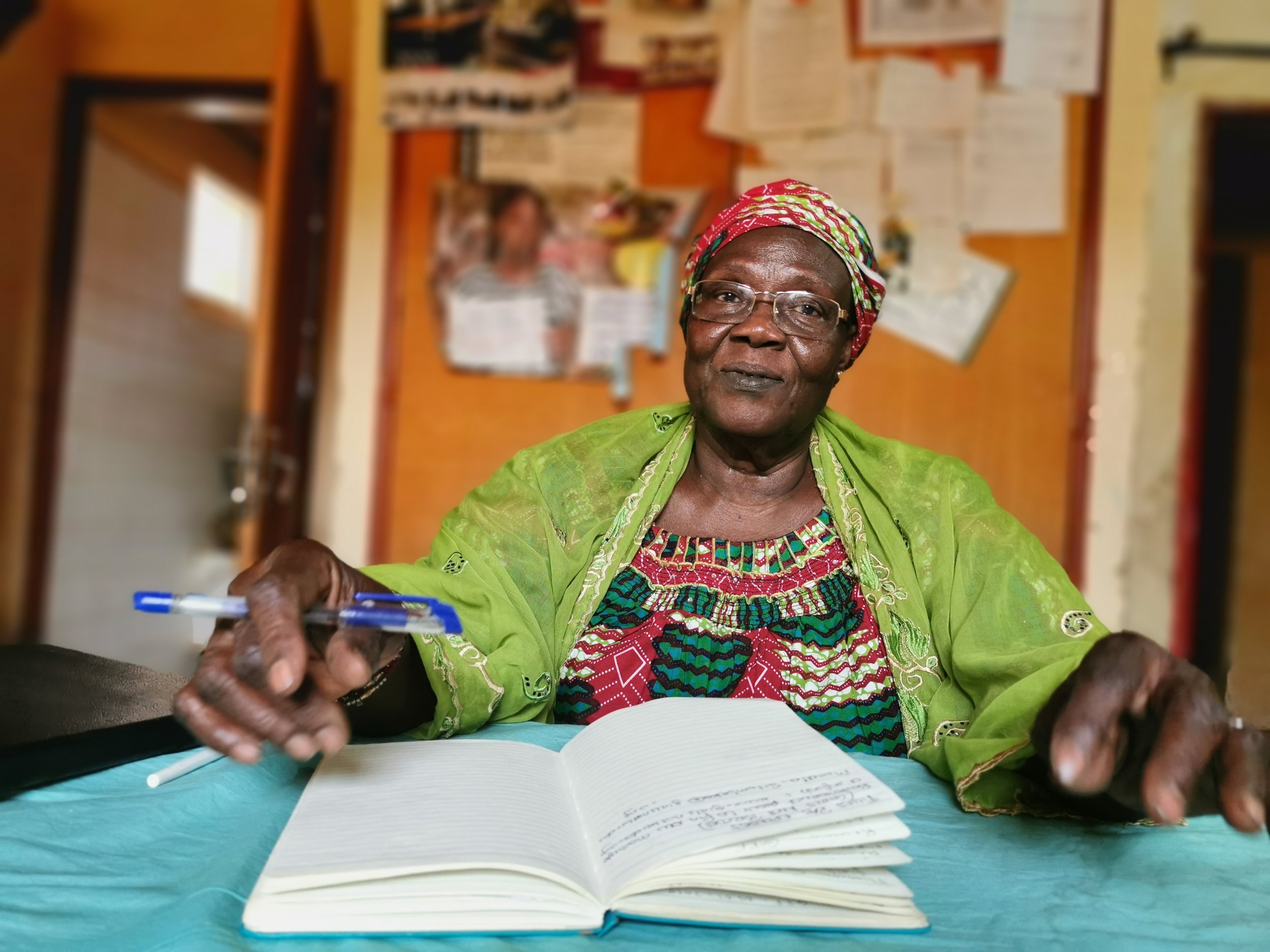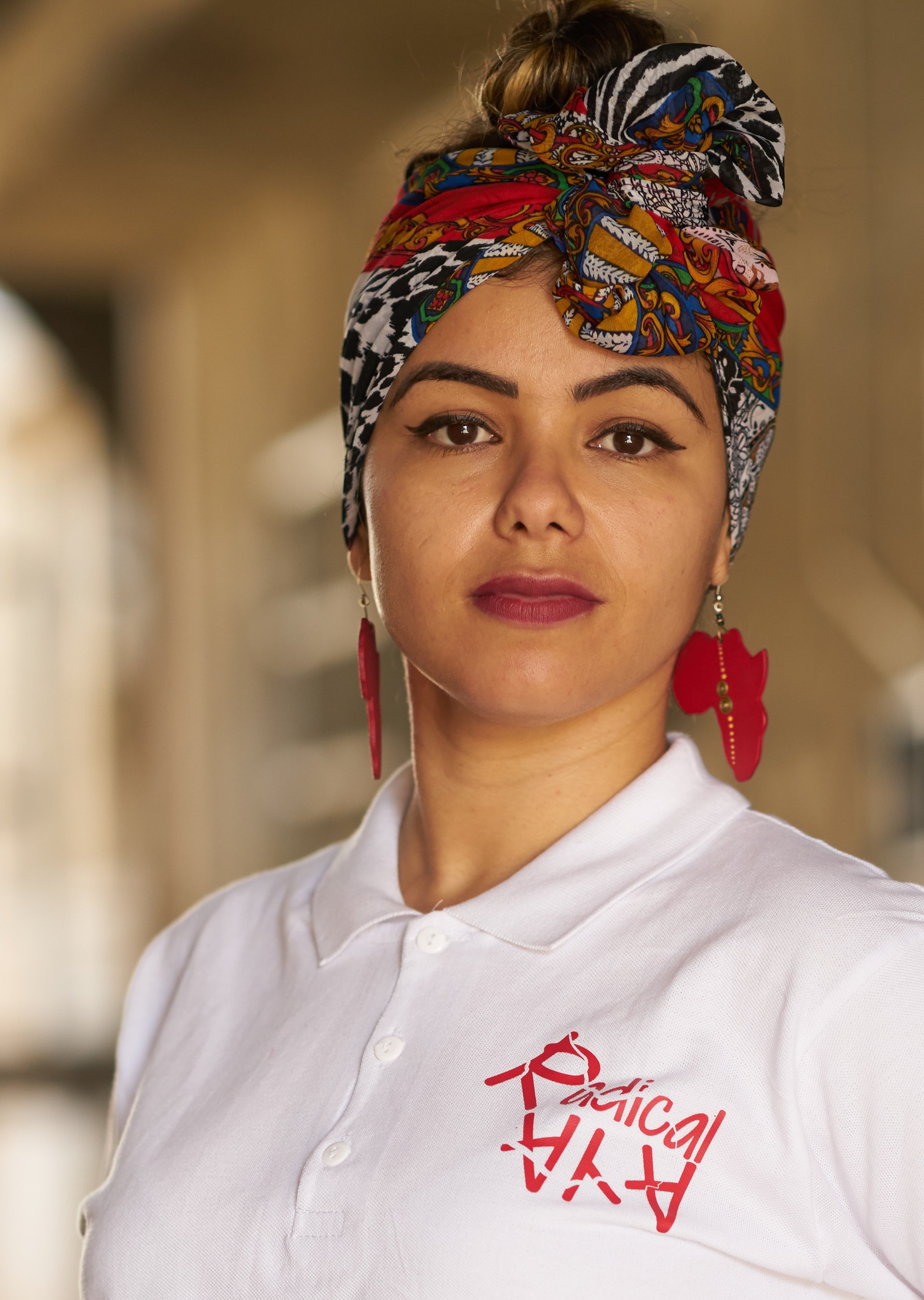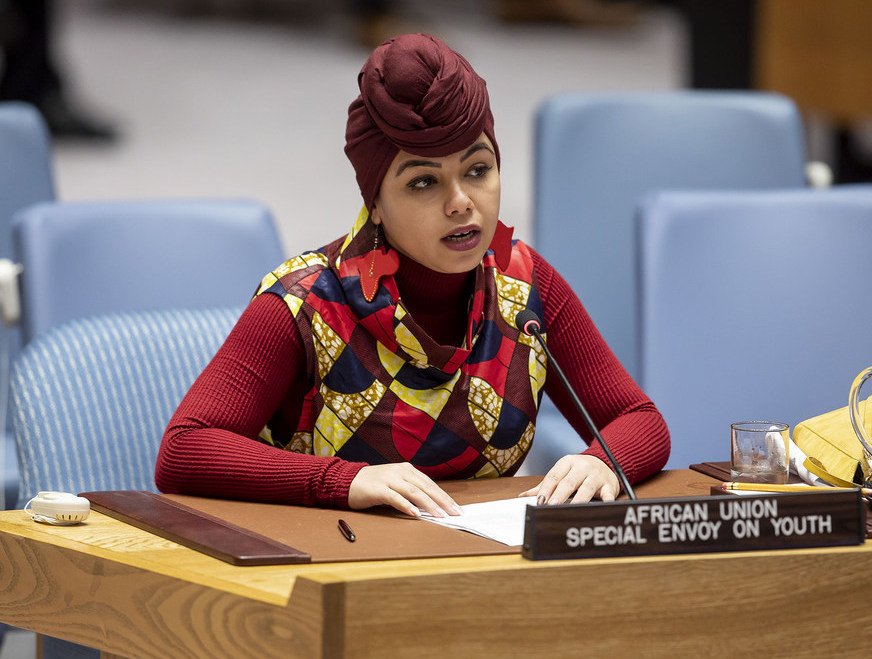“I really don't like patriarchy as a system” - Lorato Palesa Modongo (Botswana) 1\5
/Lorato Palesa Modongo is an African feminist from Botswana. She is a Psychologist, with interests, skills, knowledge and over 7 years’ experience in Social Psychology, academia, qualitative research on gendered violence, decolonialism and African feminisms.
In our series of conversations exploring intergenerational African feminist movement building, Jama Jack interviewed Lorato to learn about her feminist journey from an early age of consciousness and resistance to her current involvement and engagement in feminist movements at various levels. We also learn about her educational background and how it connects with her work as a feminist (Part 2); her thoughts and experiences being a part of feminist movements and spaces (Part 3); her observations on the tensions that sometimes hinder intergenerational African feminist movement building, as well as possible solutions to bridge the gap (Part 4); and finally, personal and collective healing to support our movements, Lorato’s current work with the African Union and her journey towards self-reconciliation to unearth her vision of herself (Part 5).
**********
Hello Lorato! Thank you so much for joining me today. We are really glad that we can get to speak to you and learn more about you, your journey, your feminist work, and a lot more. How do you like to introduce yourself?
I was having a conversation with a friend, and I was saying that I’ve realised that the way I introduce myself - not evolves - but changes depending on where I am. So back in the day I used to describe myself as a young Motswana girl. Then I moved to South Africa for my post-graduate and because of what I was confronted with at the time, I found that how I introduce myself changed to: “I am a young Black woman”. I knew I was a woman; I knew I was an African and I didn’t find a need to announce that I was Black. But now that I was in South Africa, I found myself needing to highlight the Blackness into my identity.
With time I found that I needed to then move to not saying I’m just a Black woman, but I’m a Black feminist. In the journey, I found that I also had to state what that feminism looks like which, for me, was an African intersectional feminist.
So, where I’m at currently, I really like introducing myself as: I’m Lorato. I’m from Botswana, firstly. I’m a young African Black woman, and I believe in the African intersectional feminist ideology; it anchors me, amongst other layered anchors. I’m also a psychologist researcher, and I specialise in Social Psychology. I do development work, community building in the different communities I find myself in at national, continental and international levels.
And when you say you’re rooted in African intersectional feminism, what does that mean?
It means that I recognise that I am African. I was born here, my roots are in Africa. The intersectional part is understanding how other –isms are linked and multi-layered. When I recognise the oppressions against my being, I also have to recognise the ways in which I am privileged and how I can use that privilege in other spaces. I think that’s important.
As much as I understand sexism or racism, I also understand classism and the fact that for me, having three university degrees, being able to articulate myself in English, having gotten those qualifications in colonial institutions, has the power to help me enter certain spaces that others are not privileged to enter. And this is not because I’m necessarily the best person. So, I recognise and acknowledge that. At the same time, I acknowledge that even if I'm in those places I'll always be viewed as Black, as young, as a woman, as being African or from the “global south”. But the feminist part of it is at the core of it. I just really don't like patriarchy as a system. I don't know if we will ever get to a point where we completely eliminate it.
Have you been able to identify the source of that hate for patriarchy? Is it something in particular that happened at a point in your life?
Definitely. I vividly remember, I was 8 years old back in my village. I grew up in an extended family and I was raised by my grandparents. My uncles - my dad's little brothers - were almost my age, or slightly older than me. There were the two of them and me… so, three kids. My grandmother did pretty much everything in the house. She cooked, she cleaned, and she took care of us. And in my mind, I thought she was doing all those things because she was older.
One time they left us by ourselves, and they went for the weekend, so we did what kids do. My uncles cooked, we didn't do the dishes, and we messed up the house. When they came back the conversation was, “Why is my kitchen so dirty? Why is the sink full of dishes and there is a girl at home?” And I was eight years old. I paused and said “Ah, but they are older than me. They’re supposed to be cleaning.” In my mind, that's how things went. Adults had to do adult things and I was a child. I didn't see my uncles - I would call them my brothers - as men. I saw them as just people, and older. So, I said no, and I started protesting… [Laughs]
“My grandmother did everything in the house. I thought she was doing all those things because she was older. ”
That was the beginning. That's when I started observing that my grandmother is not doing these things because she's older, because my grandfather is not doing them, right? I just started always protesting at home to a point where they just started calling me Emang Basadi. The feminist movement in Botswana was gaining momentum and the civil society organisation that was really driving the wave was called Emang Basadi, which means “Women, stand up”.
And when they called you that, did you also internalise it and say “yes, this is who I am”? Or did it create a conflict?
I was like “Yes, women must stand up. What is this?” I even started teaching my younger cousins. So, if I saw one of them who’s a girl cooking, I'm like okay, that's good. But if I see her doing the dishes after cooking, and the boy is not, I tell her to stop.
I know for a lot of us, we started feministing even before we had the language of feminism that we now use, with the awareness that we now have. Do you remember when you first started calling yourself a feminist?
I remember it, yes. It was around 2010/11, but I was tip-toeing around it and walking on eggshells when using the word. And this was in Botswana. I had been recruited into a research project by one of my lecturers in the Department of Sociology. There was a research project by the Africa Gender Institute, which is based in the University of Cape Town and they were doing this multi-institution action-based research on gender, politics, and sexuality in the lives of young women between the ages of 16 and 25 in five SADC Universities. The University of Botswana was selected as one of them, and I was in the team doing the action-based research. I was still a student there. We were just describing our stories, our lives and what we envisioned, until I stumbled upon this word that was describing the work that we were doing, but I had never heard of before. Also, social media wasn't big then.
Yeah. It was still in the baby stages compared to what we see now, at least in terms of using it as a tool for movement-building.
Right! And the internet itself wasn’t big then. I remember I didn't even have a computer. We used to go to the University library to use the computers there. I tried to search for that word and all the things I saw were bad things. The ownership and the claiming of the word was just... It was a contested space. To put it very bluntly, it was embarrassing to claim that word, because then you were saying that you are this angry person. For context, Botswana is described as one of the most peaceful countries in Africa because of the peace and the democracy. And the activism movement isn't that big. It then becomes as if you go out of your way to look for something to fight about. So, I didn't use the word. I was aware of it, but I deliberately didn't use it.
Until I went to South Africa… and because I was going to do my post-grad in psychology, and I had an interest in social psychology, I had to engage more with thought around that. And then I saw the word and because a lot of people were using it and there were a lot of people doing the work that I loved, I was like, “oh, it's not really a biggie.” So, I started reading more about it, using it more, feeling more confident, more independent and affirmed, not just by my peers, but also by people like my supervisor, for example. When he would introduce me, he would say, “she's doing amazing feminist work.” And people will be like, “Oh, we want you on this project.” So, I was like, “Oh, there's no shame?” So, I think the South African space affirmed it, but I learned about it in Botswana in 2010.
You talk about doing the research and everything you saw was bad. What was this bad? What did it look like?
It was the media representation. It was the way people talked about it, the nuances around how it was positioned in day-to-day conversations. But it was also tapping into the issue of sexuality as well. And at that time, I wasn't ready to have conversations around sexuality. And I think the world I was living in wasn't even having those conversations, because we didn't even have the words to describe sexuality. For example, when people said, “Oh, they are lesbians”, it was an insult at that time. So that was one of the many contestations around it. But also… I think the immediate rejection of the word. There was no space to even say, “no, what we mean is…”. It was immediately rejected.
Was this because of the culture in Botswana? What really was the source of that rejection where there wasn't even space for that kind of conversation?
Culture first and foremost. But I also think the packaging of feminism perhaps and the lack of information, like I said. The women's rights movement blew up in terms of visibility in the advent of social media. We have to acknowledge the power of social media. That you get to see in real time, the happening of conversations. And you have better access. But back then you had to wait maybe for a publication either on print media or books. And the energy and appetite that people put in to seek knowledge is not necessarily as immediate as we see it now, on social media. I literally have to swipe my phone, and I'll be confronted with the information. So, I also think the lack of information and knowledge and understanding is what caused the resistance.
In the second part of our conversation with Lorato, she tells us about the path that led her to social psychology and how she engages at the intersection of this field and her feminist actions. Click here to read Part 2.












































